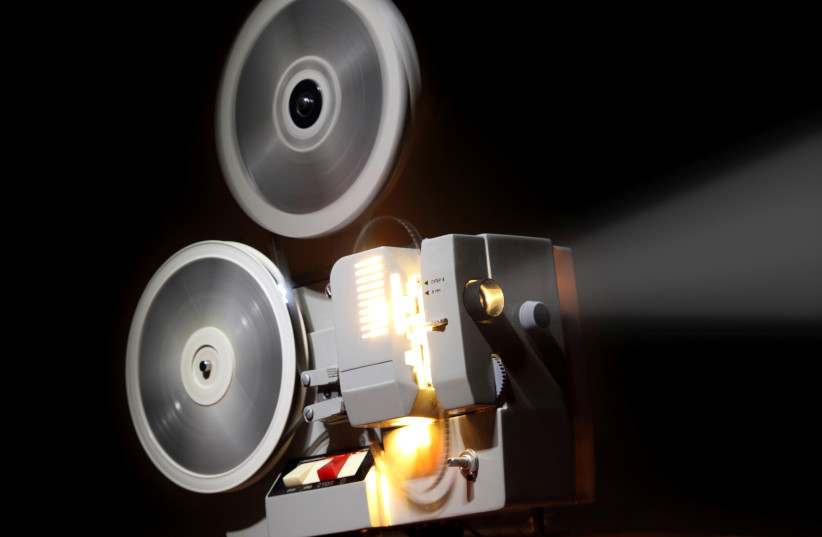The typical Hollywood portrayal of the elderly is usually a movie like Cocoon, the 1985 hit featuring such stars as Don Ameche and Jessica Tandy who play oldsters who jump into a pool infested with aliens and come out rejuvenated. You can look and act old in a mainstream movie for a few minutes, but that’s it.
That’s why I wasn’t looking forward to Thelma, about a grandmother who is scammed and vows revenge. It sounded like it would be a story of a cutesy old lady who would quickly start acting young and perform unrealistic feats.
But Josh Margolin’s Thelma, which opened the Jerusalem Film Festival last month and opened in theaters around Israel on August 8, is the opposite of Hollywood’s usual formula. It’s a touching and entertaining story about what getting old is like for many people, with real laughs and moving moments.
Even more than that, the movie, which seems to have been conceived with young audiences in mind as well, might teach the younger generation a little bit about what may be in store for them and inspire respect for their elders, not by scolding them but by helping them identify with the older characters. This is much trickier to pull off than it sounds and to do it and make an enjoyable movie at the time is almost miraculous.
What is the movie Thelma about?
Another factor that made me like the film is that the actors playing the elderly really are as old as their characters, notably June Squibb, currently Hollywood’s go-to over 80 actress (replacing the late Betty White in that distinction), who is actually 94, in the lead. Richard Roundtree, who was 81 when he passed away last October and is best known for portraying the title character in the action classic Shaft, plays a key supporting role.

THE MOVIE starts by establishing the close relationship between Thelma and her 20-something grandson, Danny (Fred Hechinger, who was so memorable in the first season of The White Lotus). She is a widow who keeps busy doing needlepoint and exercising, and even goes on Facebook.
Danny has a bit of that failure-to-launch syndrome. His girlfriend just broke up with him and he doesn’t feel he has much to offer anyone new. This aspect of the script is particularly good because it shows that every age has its challenges, and Danny is unsure how he can make his mark on the world.
Danny’s parents, Gail (Parker Posey) and Alan (Clark Gregg), have middle-aged problems, mainly that they are so caught up in their own careers and successes that they think they have all the answers and have little patience for both Thelma and Danny.
When Thelma gets a phone call from a man claiming to be Danny, saying he has been jailed, she is completely taken in and sends $10,000 to a man who says he is Danny’s lawyer. Her family and the police are sympathetic and explain that these things happen, but Thelma is understandably angry and humiliated. She can’t let it go and the more everyone tells her to forget about it, the more she becomes determined to get her money back.
She heads off to an assisted-living facility to borrow a scooter from her husband’s old friend Ben (Roundtree), who is reluctantly roped into her scheme and insists he must be home in time to play Daddy Warbucks in the facility’s production of Annie. And off Thelma and Ben go, as images of Tom Cruise in Mission Impossible, which she has recently seen, play in her mind.
The movie builds in emotional intensity as they go on a Quixotic quest in a soulless suburban landscape, a reminder of how unfriendly typical American communities are to older people who can no longer drive. You root for them in their daring moments, such as when Thelma says, “We all have our good days and our bad days,” and he asks, “What’s today?” to which she responds, “We’ll find out.”
But the fact of their physical frailty is ever present, and a simple walk up a flight of stairs is as fraught with peril as Cruise’s exploits in the Mission Impossible flicks. In a heart-rending speech, as the two argue, Ben tells her, “We’re old. Diminished. The least we can do is take care of each other.”
But it is a comedy, albeit a thought-provoking one, and there were genuine laughs throughout, as well as suspense. There is a certain amount of deck-stacking toward the end, and a few things improbably go their way, but sometimes you need a movie like that. Who’s to say that the elderly can’t have a run of good luck now and then?
WHILE THE entire cast is good, the movie is a showcase for Squibb, and this is her first starring role. Originally a stage actress, she started making movies in 1990. Her career was revitalized when she was cast by Alexander Payne in the road-movie, Nebraska (2013), and she was nominated for an Oscar.
Currently, she can be heard as the voice of Nostalgia in Inside Out 2, and she has two movies slated to be released soon. One of these is Eleanor the Great, in which she plays the title character, Eleanor Morgenstein (according to Squibb’s Wikipedia page, she converted to Judaism over 60 years ago), which will be Scarlett Johansson’s feature directorial debut. I would order a ticket now if I could, and I suspect that a lot of viewers of Thelma would, too.
A treat for viewers at the very end is a glimpse of director/screenwriter Margolin’s actual grandmother, who happens to be named Thelma. She clearly inspired the movie. As she looks out of the car window at tree roots that have been around a long time, and marvels at the beauty of nature, you will understand why Margolin made this movie.
